Evolution of iTAG
The iTag mission is to build a community focused on understanding the importance of movement to management and conservation of aquatic animals.
To meet this mission, we are building infrastructure, trust, and systems to benefit members and management. iTAG began in 2014 when scientists, vendors, and ocean observing representatives identified the following needs: (1) the capacity to exchange detection data across arrays; (2) consequent meetings to increase networking and knowledge; and (3) integrative telemetry research projects to demonstrate the benefit to management of understanding movement.
Founding members were: Dr. Lowerre-Barbieri (University of Florida/FWRI), Dr. Jay Rooker (Texas A&M, Galveston), Dr. Will Patterson (University of Florida), Dr. Behzad Mahmoudi (FWRI), and Dr. Clay Porch (NOAA/NMFS), working closely with Dr. Fred Whoriskey from the Ocean Tracking Network (OTN).

iTAG Milestones

Steering Committee 2019-2024
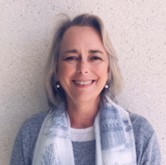 Dr. Susan Lowerre-Barbieri
Dr. Susan Lowerre-Barbieri
Sue Lowerre-Barbieri chairs the iTAG steering committee. Her research group currently oversees five large arrays throughout much of Florida. In addition, they manage iTAG and the iTAG data exchange. Their tracking studies focus on using telemetry to help assess availability to capture and thus estimates of abundance; assessing stock structure and how anthropogenic changes to habitat may affect it; and improving parameter estimates used in stock assessments such as discard mortality and estimates of spawning activity affecting reproductive potential.
 Dr. Will Patterson
Dr. Will Patterson
Will Patterson utilizes acoustic telemetry to examine movement dynamics, foraging behavior, and habitat utilization by native reef fishes and invasive lionfish on natural and artificial reefs in the northern Gulf of Mexico (nGOM). Typically, his research group deploys large-scale (10-30 km2) arrays with which to measure the 3-dimensional (3D) movement of acoustically tagged fish. They also have utilized 3D telemetry to examine acute and chronic release mortality in snappers and other species at various depths typically fished in the nGOM recreational reef fish fishery. He is a founding member of iTAG.
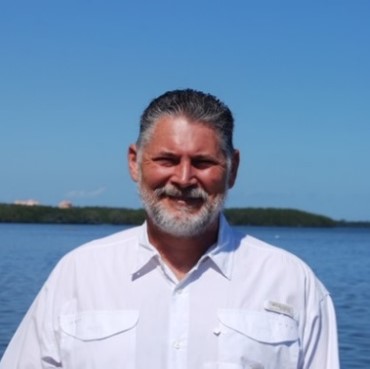 Dr. Clay Porch
Dr. Clay Porch
Dr. Porch has long-standing experience at NOAA, having held various positions with the agency for more than 25 years, winning multiple awards for his leadership and administrative capabilities. He has overseen population assessments and research for vitally important domestic fish populations in the Gulf of Mexico and Caribbean, as well as some in the South Atlantic and internationally for the International Commission for the Conservation of Tuna. His work with Tuna has highlighted the importance of understanding movement to achieve affective management and he is a founding member of iTAG.
 Dustin Addis
Dustin Addis
Dustin leads the marine fisheries stock assessment group at FWC-FWRI in Saint Petersburg, FL. His previous research includes stock assessment, population dynamics, fisheries management, and fisheries ecology and behavior. As part of his master’s thesis work he conducted a tagging/modeling study of reef fishes associated with unreported artificial reefs in Northwest Florida. He’s interested in achieving improvements in fish tagging techniques with emphasis on applied fisheries research and stock assessment.
 Dr. Greg Stunz
Dr. Greg Stunz
Greg is a marine biologist that specializes in fisheries ecology. He holds the Endowed Chair of Fisheries and Ocean Health at the Harte Research Institute for Gulf of Mexico Studies and is a Professor of Marine Biology at Texas A&M University-Corpus Christi. He is also the Director for the Center for Sportfish Science and Conservation. A major goal of Dr. Stunz’s research program is to provide scientific data for sustainable management of our marine fisheries and ocean resources to ensure healthy environments. Dr. Stunz’s uses acoustic telemetry to study migration patterns of marine life using estuarine, nearshore, and pelagic waters. Much of this work centers around how fish use artificial reefs and tidal inlets. He also uses telemetry to examine basin-scale movement in and out of the Gulf of Mexico for highly migratory species such as sharks. Additionally, he and his team are using acoustic technology to examine discard mortality and ways to mitigate barotrauma.
 Dr. Ruth Mullins-Perry
Dr. Ruth Mullins-Perry
Ruth is a Marine Scientist and Regulatory Policy Specialist responsible for offshore marine environmental regulations and policy for Shell Exploration and Production Company. In this role she integrates marine science and ocean technology into regulatory policy advocacy primarily in the Gulf of Mexico. She also spearheads many of Shell’s efforts to develop public-private science collaborations. Her focus areas include marine sound, marine spatial planning, and ocean observing systems. She is the project manager for a new collaboration between multiple institutions and the National Academies to build a real-time deep ocean observing station at Shell Stones production facility, which includes collaboration with VEMCO and University of Florida scientists to evaluate the efficacy of acoustic tag equipment. She is a board member of the Gulf of Mexico Coastal Ocean Observing System, as well as the Ocean Studies Board at the National Academies of Science.
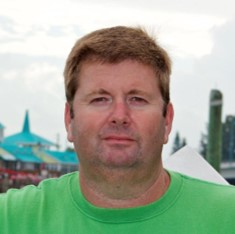 Jason DeLaCruz
Jason DeLaCruz
Jason’s entry into the seafood industry was fueled by his love for spearfishing. He joined Shareholder’s Alliances & helped start the Gulf Wild brand promoting sustainable, domestic, and most importantly traceable seafood to support domestic industry in the Gulf of Mexico. In 2016 he was recognized by President Obama for as a Champion of Change for promoting sustainable seafood. He remains active in almost every aspect of the seafood community, from SEDAR reviews, Advisory Panels, Gulf Council Meetings, to working with commercial fishermen, boat building, and staying in tune with the market.
Our Team

Hayden Menendez
Membership Coordinator
Fisheries biologist at Florida Fish and Wildlife Research Institute

Claudia Friess
Database Management
Fisheries modeling; Post-doc at Florida Fish and Wildlife Research Institute
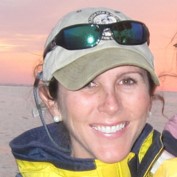
Sarah Walters-Burnsed
Data Analyst
Marine finfish biologist at Florida Fish and Wildlife Research Institute

Joel Bickford
Field Operations Manager
Fisheries biologist at Florida Fish and Wildlife Research Institute
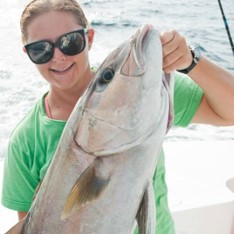
Kara Wall
Field Technician
Fisheries biologist at Florida Fish and Wildlife Research Institute
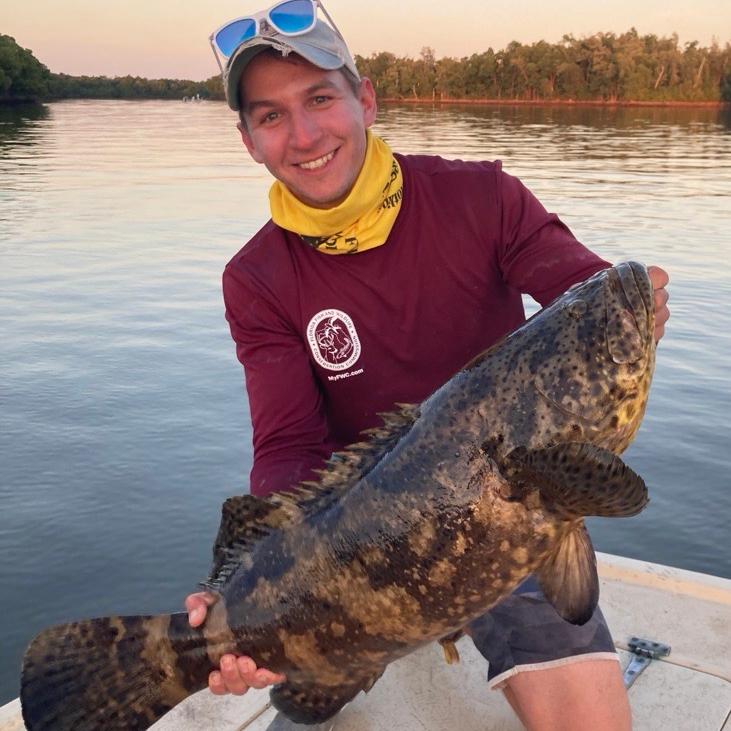
Alex Famigletti
Field Technician
Fisheries biologist at Florida Fish and Wildlife Research Institute
